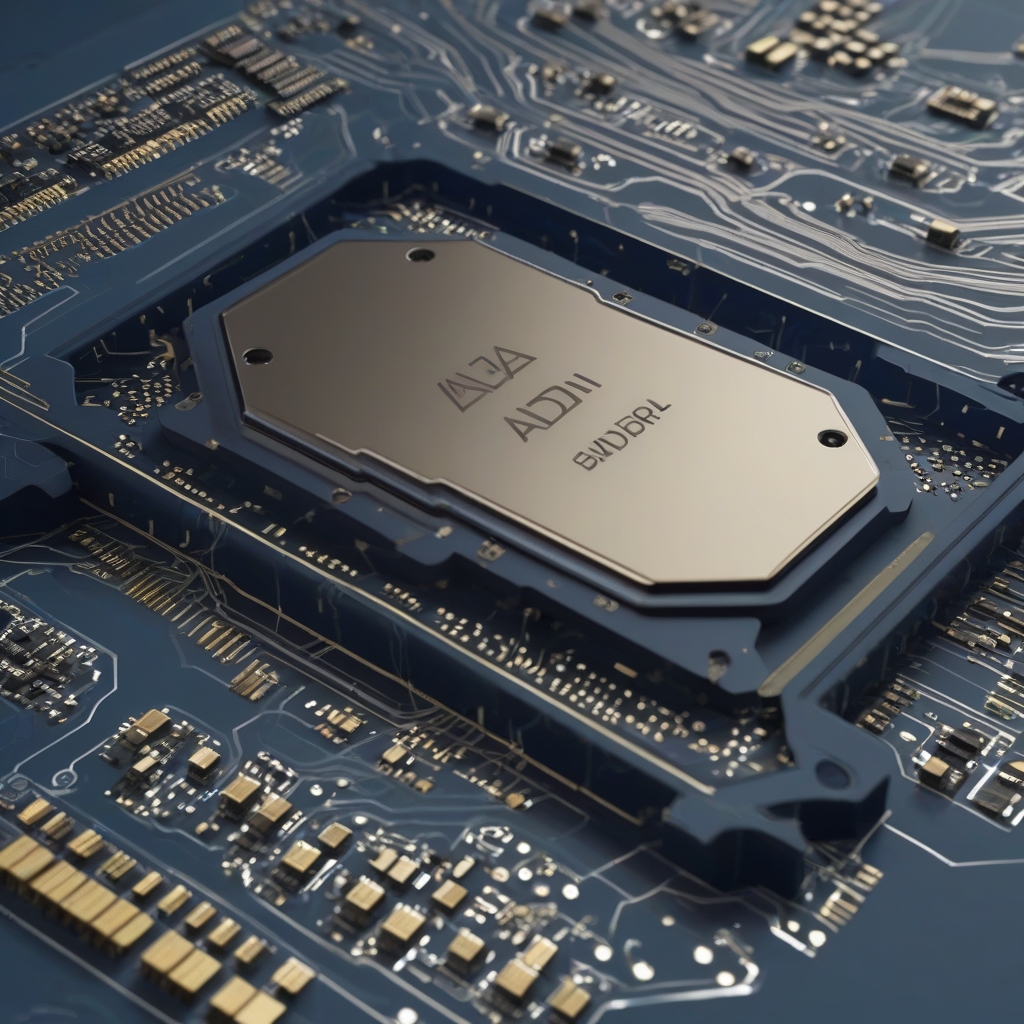Introduction
As artificial intelligence (AI) continues to shape various facets of our lives and industries, the hardware that powers these AI systems has become increasingly pivotal. Recently, a developing situation has surfaced involving the United States government’s contemplation of restrictions on AI chip sales to certain countries. Prominently, this would affect two leading chipmakers, Nvidia and AMD, renowned for their cutting-edge AI processors.
The Importance of AI Chips
AI chips are specialized processors designed to accelerate machine learning tasks. They are integral to powering AI applications from autonomous vehicles to advanced data analytics. **Nvidia and AMD**, leading developers in this sector, have become synonymous with AI advancements, thanks to their high-performance graphics processing units (GPUs) tailored for extensive computational tasks.
Key Advantages of AI Chips:
- Enhanced processing power for deep learning models
- Efficient energy consumption compared to traditional CPUs
- Scalable for various AI applications, from small gadgets to large data centers
The global demand for these high-performance chips is escalating, as nations and corporations seek to leverage AI for competitive advantage.
The Geopolitical Angle
Recently, according to reports, the US government is assessing the feasibility of limiting the export of Nvidia and AMD’s high-end AI chips to certain countries. This move is profoundly embedded in the current geopolitical climate, where technology and national security intersect more prominently than ever.
**Why are AI chip sales potentially being restricted?**
– **National Security Concerns**: The capability of these chips to accelerate machine learning processes may potentially be used in military applications.
– **Balance of Power**: Limiting access can ensure the US maintains a significant technological edge over other nations in AI development.
Countries like China, in particular, are seen as strategic rivals, making them potential targets of these sales restrictions due to their aggressive pursuit of AI technology.
Implications for Nvidia and AMD
Introducing restrictions could considerably reshape the landscape for Nvidia and AMD. **Impacts include**:
Revenue Concerns
- Exporting to foreign markets constitutes a significant segment of Nvidia and AMD’s revenues.
- Potential sales bans can translate to substantial financial hits for these companies.
Innovation and Development
- Limiting sales might redirect focus inward, stifling potential overseas collaborations and innovations.
Supply Chain Dynamics
- Global supply chains could be disrupted, requiring reevaluation of production and distribution strategies.
The Global Tech Market Response
Global reactions to potential restrictions present a mixed bag. Ally nations may support the move as a necessary step for security purposes, while others might see it as a protectionist measure that disrupts the free flow of technological advancement and information exchange.
Possible International Responses
Allies Supporting Secure Tech Policy
- Nations aligned with US security policies may back the move, reinforcing alliances.
Criticism from Restricted Countries
- Countries facing limitations would likely criticize the decision, viewing it as an economic and technological blockade.
**Possible Countermeasures by Affected Nations:**
Nations impacted by these restrictions might seek to develop indigenous alternatives to US-made AI chips, potentially investing more in domestic industries to compensate for loss of access, thereby accelerating their technological self-sufficiency.
The Future of AI Chip Regulations
Given the rapidly evolving nature of AI technology and its applications, regulations surrounding AI chip sales will need to remain adaptable. Balancing security and competitiveness in a globally interconnected market poses a significant challenge.
**What could be on the horizon?**
– **Potential for New Diplomatic Channels**: Engaging in dialogue with other nations to discuss the implications and mutually beneficial paths forward.
– **Need for International Agreements on AI Technology**: Establishing a global framework or set of guidelines on the ethical distribution and utilization of AI technologies.
Conclusion
The US contemplating restrictions on Nvidia and AMD AI chip sales underscores the intricate ties between technology advancement and geopolitical strategy. While the move can consolidate the US’s position as a tech leader and safeguard national security, it also presents risks of economic repercussions and broader international tensions. As nations navigate through these complex dynamics, the situation embodies the critical need to harmonize advancement with regulation, ensuring the benefits of AI and technology advancement transcend borders responsibly.

Leave a Reply